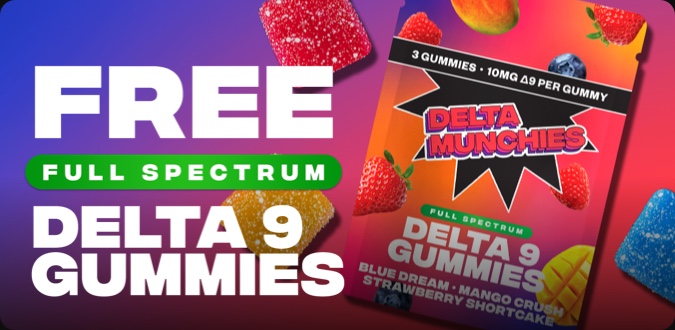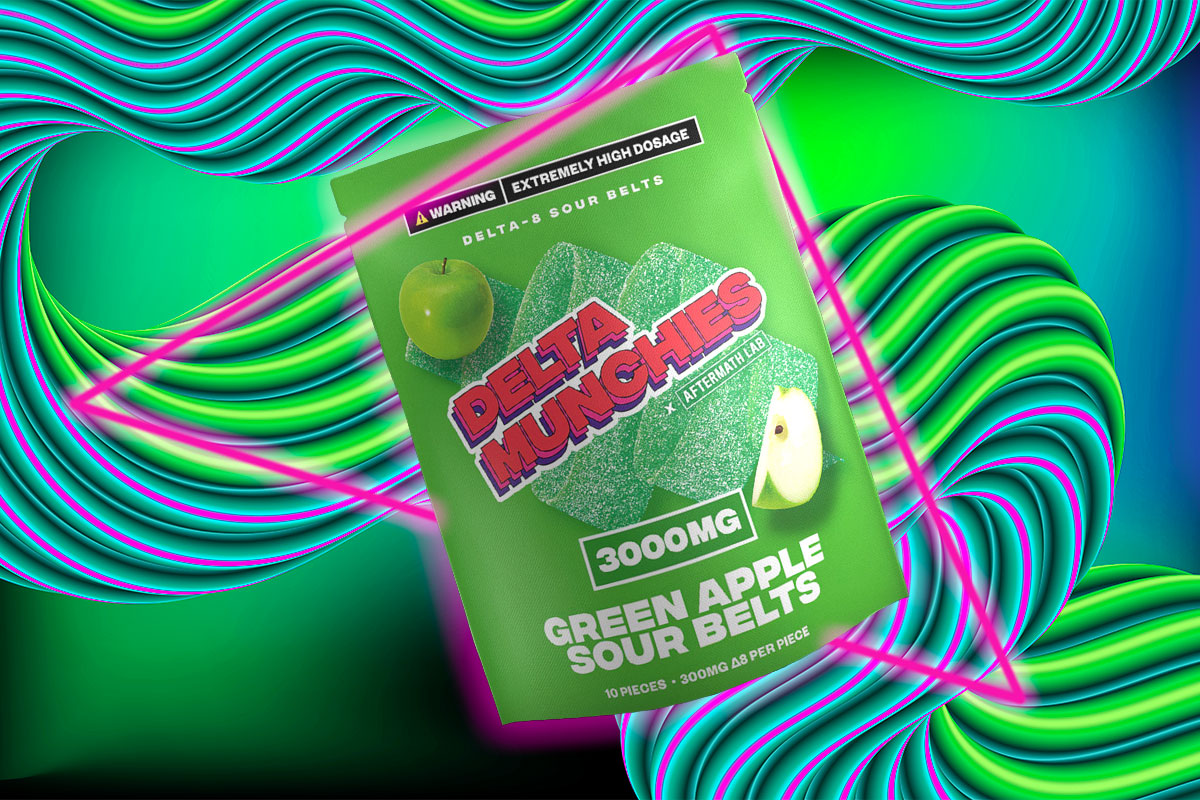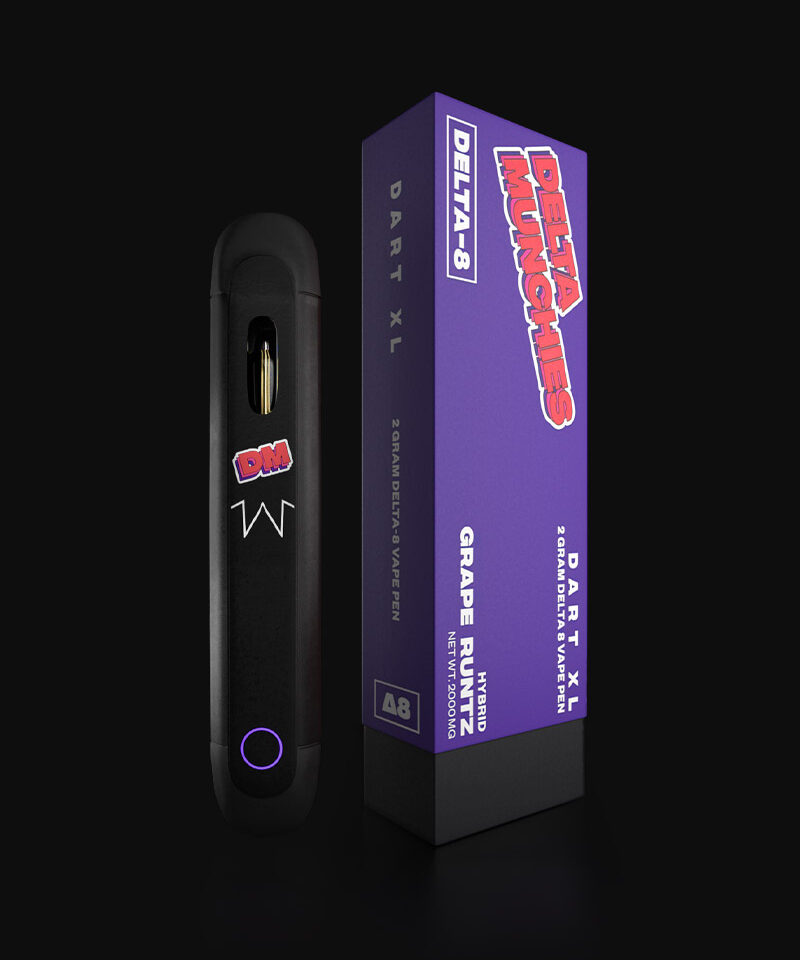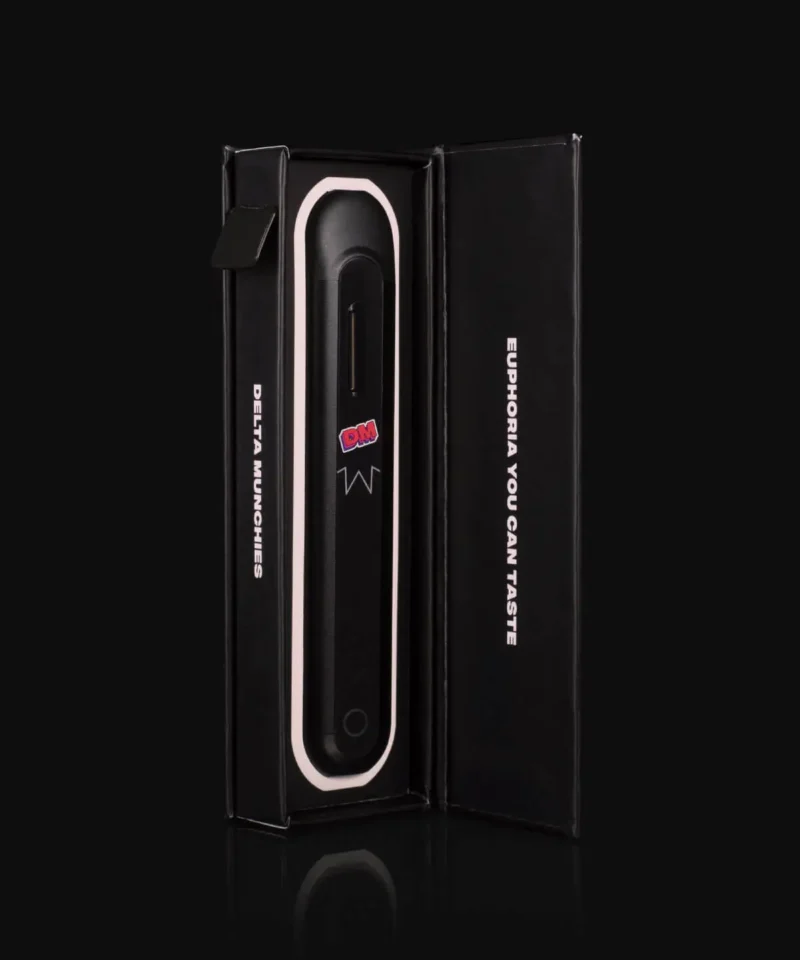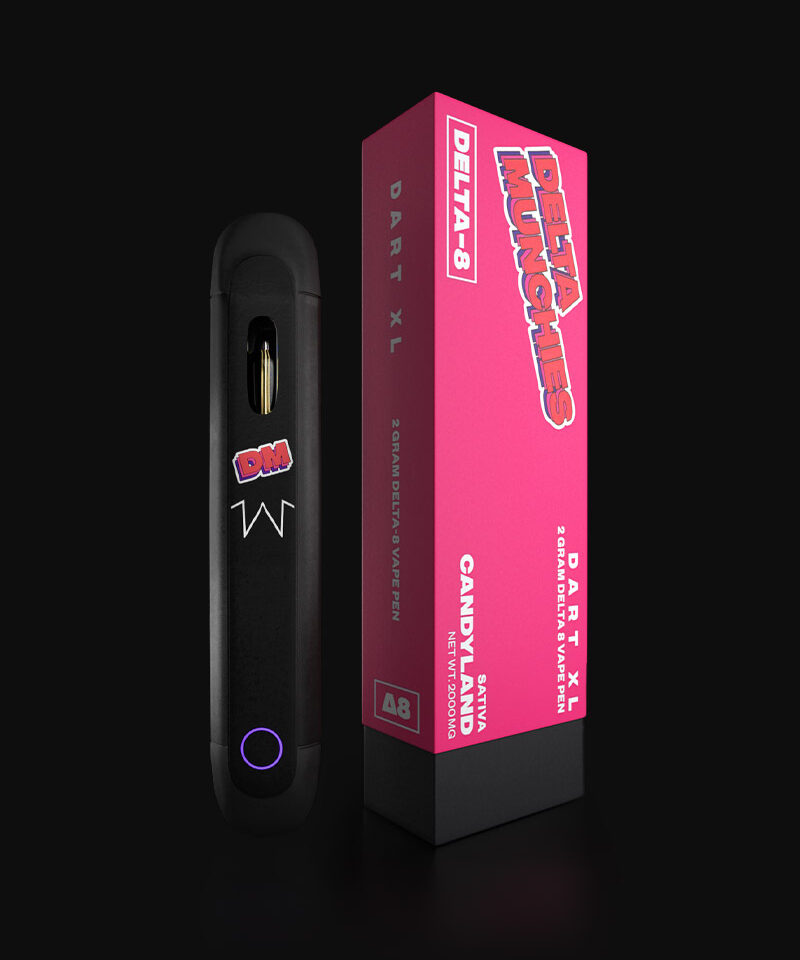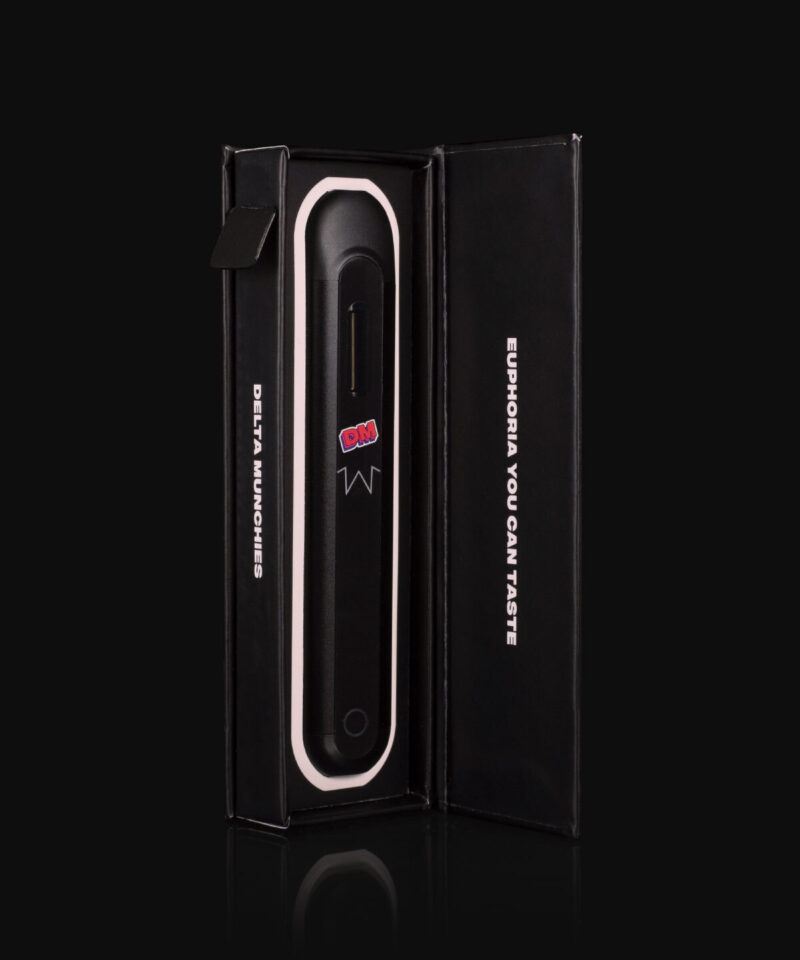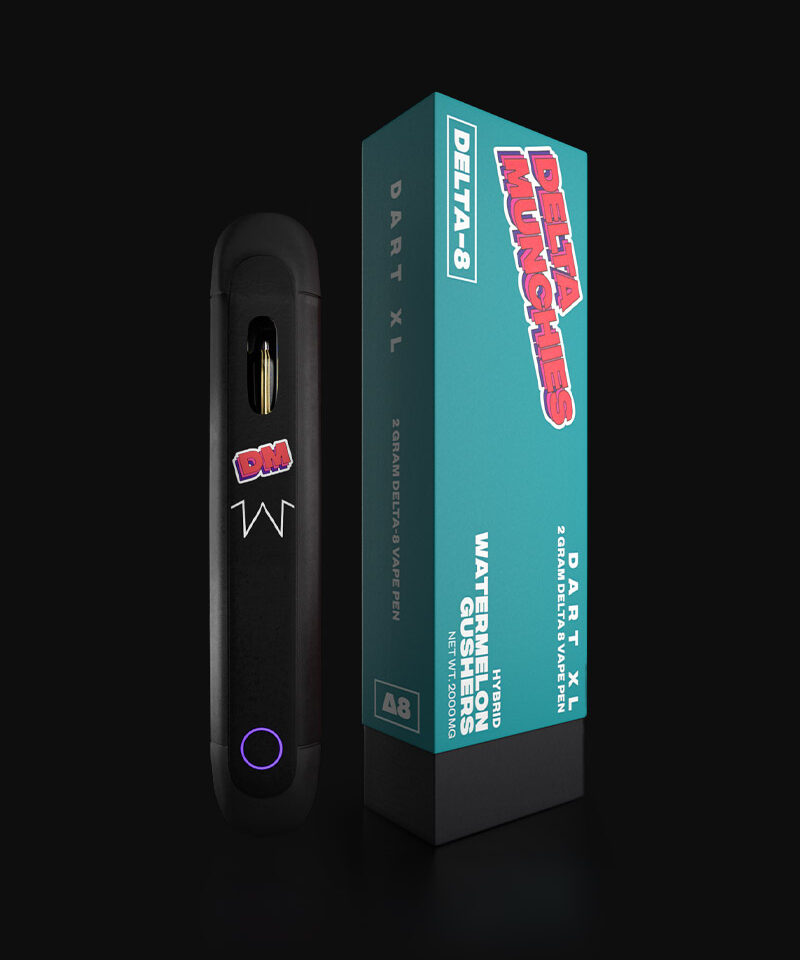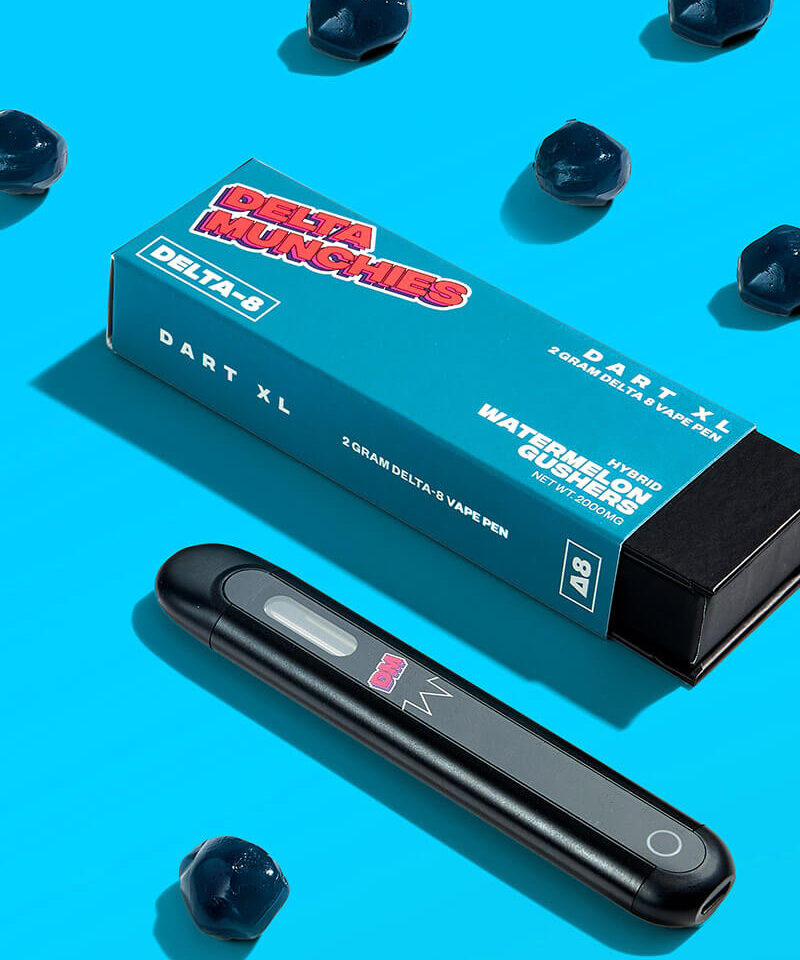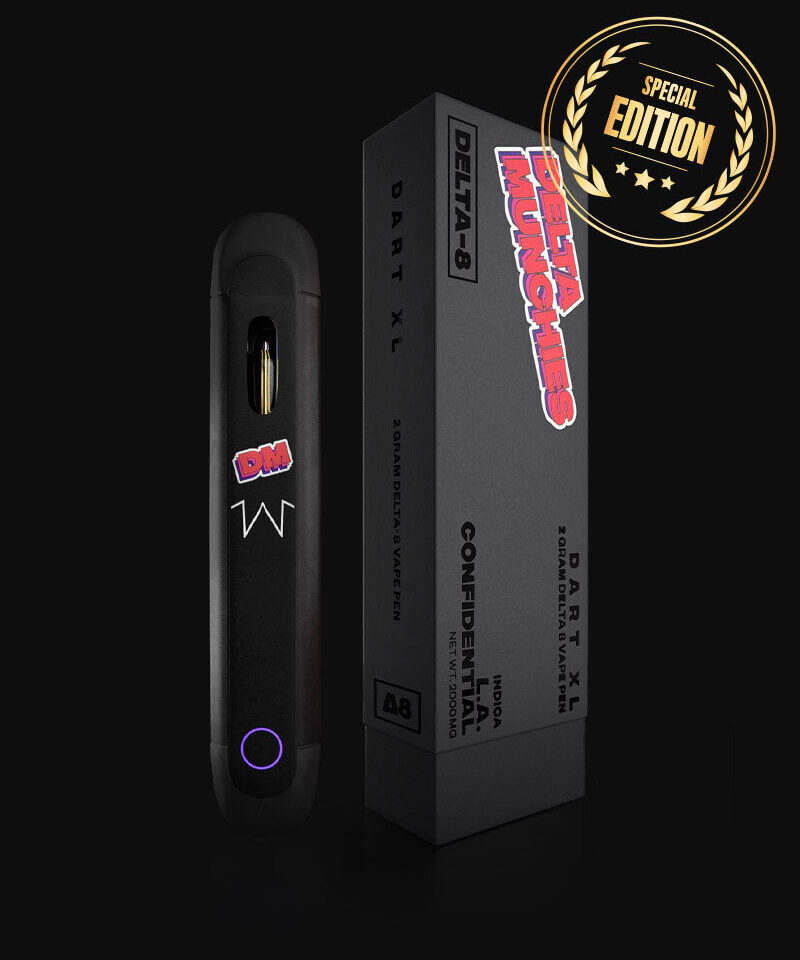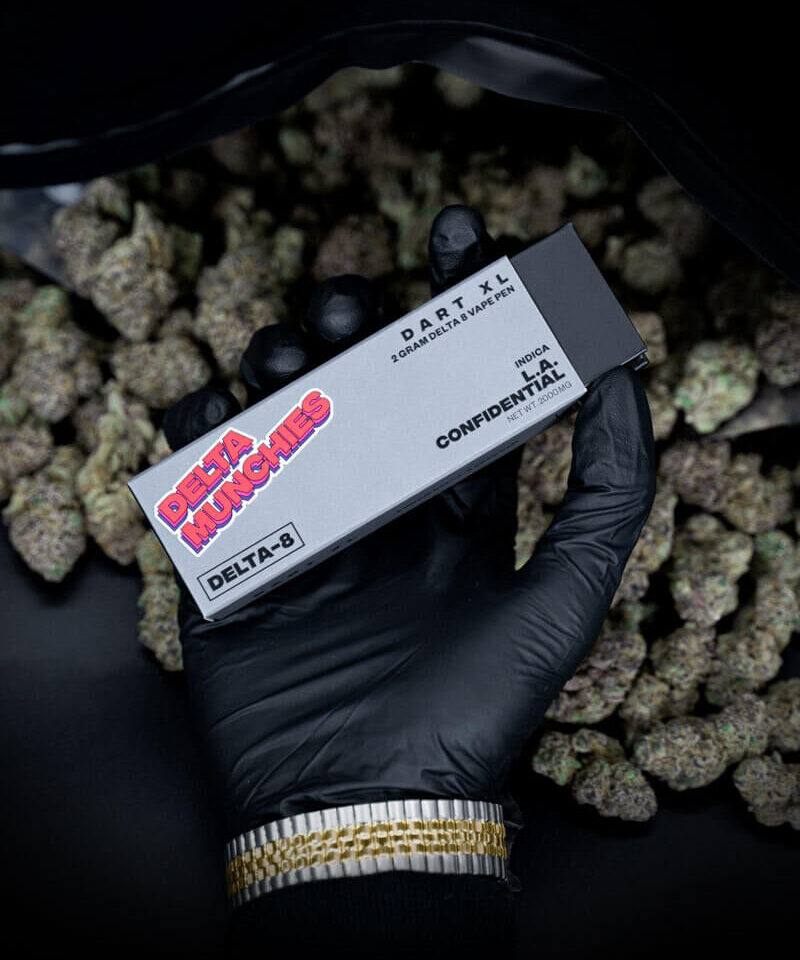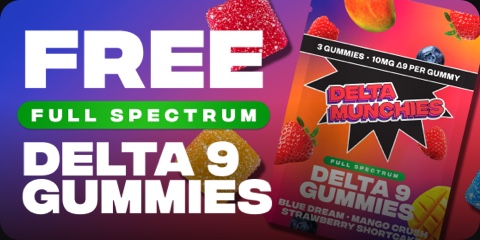If you thought delta 9 THC was the only cannabis compound worth knowing about, think again. The world of cannabinoids is ever-expanding and it seems we never fully explore the full capabilities of one before another pops up.
Today, we have two new kids on the block — delta 10 and delta 11.
These two lesser-known cannabinoids have been making waves in the cannabis industry in recent years, with many people claiming that they are the next best things. But are these cannabinoids really worth the hype?
The following paragraphs walks you through the top deets you need to know about delta 10 and delta 11, including their effects, similarities, differences, and pointers on which may be best for your needs.
While we don’t carry these cannabinoids, we do have top-shelf delta 8, delta 9, HHC, and THCA products. Check them out below!
Delta 8 THC
Dart XL
Delta 8 THC
Contents
- Key Takeaways
- What is Delta 11?
- What is Delta 10?
- What is the Main Difference Between Delta 11 and Delta 10?
- Delta 11 vs. Delta 10: What are the Similarities?
- What About Delta 8 vs. Delta 10 vs. Delta 11?
- What is Delta 8?
- Similarities Between Delta 8, Delta 10, and Delta 11
- Differences Between Delta 8, Delta 10, and Delta 11
- Which is Stronger: Delta 10 or Delta 11?
- Is Delta 11 Better than Delta 10?
- Can You Take Delta 10 and Delta 11 Together?
- What is the Legal Status of Delta 11 and Delta 10?
- Are Delta 10 and Delta 11 Safe?
- Delta 10 and Delta 11: FAQs
- Final Thoughts — Delta 10 vs. Delta 11
- Where to Buy Delta Cannabinoids and HHC Products Online
Key Takeaways
- Delta 11 and delta 10 are both cannabinoids that occur naturally in hemp and cannabis plants.
- Both cannabinoids offer users psychoactive properties alongside several other similarities.
- However, delta 11 is considerably more potent than delta 10.
What is Delta 11?
Delta 11 is a cannabinoid naturally occurring in hemp plants, though in limited amounts. Delta 11 is also reported to be psychoactive and will perhaps cause more intense “highs” in its users than other cannabinoids.
Some sources even say it is three times stronger than delta 9 THC.
However, you should note that until recently, delta 11 has managed to fly under the radar of experts and scientific interests. As a result, studies and research on its properties, effects, and potential downsides are still limited.
Hopefully, we can acquire more concrete information on this new cannabinoid in a short time to come.
What is Delta 10?
Delta 10 THC is also a naturally occurring cannabinoid in hemp plants. However, it only occurs in trace quantities.
As a result of its limited natural quantity, delta 10 is more commonly synthesized from more abundant cannabinoids like delta 9. Perhaps understandably, delta 10’s psychoactive effects are generally less intense compared to delta 9.
What is the Main Difference Between Delta 11 and Delta 10?
The primary difference between both cannabinoids is the intensity and potency of the “high” that they deliver.
While experts generally believe delta 11 to be one of the more powerful cannabinoids in terms of its psychoactive effects (many claim it’s at least three times more powerful than delta 9), delta 10 is typically referred to as the least potent cannabinoid.
For instance, if you consume delta 11, you are more likely to experience deep phases of euphoria and altered perception. On the other hand, delta 10 is likely to help calm you down with any sense of “escaping your body in a deep high.”
Delta 11 vs. Delta 10: What are the Similarities?
While delta 11 and delta 10 have very distinct differences, especially with reference to their effects, they also have areas where they overlap. Here are some similarities between both cannabinoids:
Naturally Occurring
Both cannabinoids occur naturally in hemp plants. Although delta 10 and delta 11 are not the most popular cannabinoids, they are also one of the potential derivatives of the plants.
Occur in Smaller Amounts
Delta 10 and delta 11 occur in trace amounts in cannabis plants. As a result, it is not cost-effective to try and extract as much delta 10 or delta 11 as you need. Instead, most manufacturers synthesize them from more naturally abundant cannabinoids.
Psychoactive Effects
Another significant similarity between both cannabinoids is that both cannabinoids will get you high. However, delta 11 produces a far stronger high compared to delta 10.
What About Delta 8 vs. Delta 10 vs. Delta 11?
By now, you already know a bit about delta 10 and delta 11. But what about delta 8?
Like its counterparts, delta 8 is also a variation of THC that can be found in cannabis plants. Not surprisingly, it also shares some similarities with the other two and has its unique properties.
What is Delta 8?
Delta 8 is one of the most common forms of THC found in cannabis plants, and it’s known for its mild psychoactive effects. It’s often used for pain relief, anxiety reduction, and appetite stimulation.
Similarities Between Delta 8, Delta 10, and Delta 11
All three cannabinoids occur in limited amounts in cannabis plants which ensures that they may be synthetically produced. Also, they all have psychoactive effects on the body as well as possible health benefits.
In other words, all three cannabinoids can show up in a drug test if you consume them beforehand.
Differences Between Delta 8, Delta 10, and Delta 11
The primary difference between all three cannabinoids is the potency of their psychoactive properties.
While delta 11 is one of the most powerful cannabinoids, delta 8 and delta 10 have more limited psychoactive effects on the body. Furthermore, delta 8 is generally deemed more powerful than delta 10.
Therefore, users typically pick delta 11 for the full-blown psychoactive experience, while the other two may be for more recreational and relaxed purposes. It is important to note here that while these cannabinoids have different potency levels, their effects on individuals are also determined by individual biological compositions and tolerance levels.
Which is Stronger: Delta 10 or Delta 11?
Delta 11 is generally stronger than delta 10 when it comes to its psychoactive effects. Interestingly, experts believe that delta 11 may be even more potent than delta 9 THC.
On the other hand, delta 10 is considerably less potent and may not even offer psychoactive effects as strong as delta 8, which is one of the milder cannabinoids.
Is Delta 11 Better than Delta 10?
One of the more questions we get in the delta 10 vs. delta 11 debate is which is better.
The truth is there’s no conclusive answer here. Your ideal cannabinoid will depend on the specific effects you’re looking to harness and your body.
For instance, if you want an intense “high” which will take you to the clouds and back, delta 11 may be a better option for you. On the other hand, delta 10 is ideal if you want a cannabinoid that offers more calming and relaxing effects.
Another factor that may determine which is better is whether you are a new user of cannabinoids and THC.
If you are a new user, then it may be better to start with the less intense delta 10 and then work your way up to delta 11 products. You may even transition to delta 9 THC before going on to the more potent delta 11.
Overall, it may be impossible to pick a “better” cannabinoid even if you open up the debate to delta 8 vs. delta 9 vs. delta 10 vs. delta 11.
Can You Take Delta 10 and Delta 11 Together?
Technically, you can. But is there really a point to taking delta 10 and delta 11 together?
While anecdotal evidence from users suggests that you can take both delta 10 and 11 together, expert data is limited. However, since many users have reportedly mixed other cannabinoids together, such as delta 8 and delta 9, it should be safe to mix delta 10 and delta 11 without any specific adverse reaction.
Nevertheless, you should note that combining multiple cannabinoids together makes it extremely challenging to track your dosage. As a result, you run the risk of becoming “too high,” which may come with side effects like paranoia, anxiety, cognitive impairments, and more.
But the good news is that these potential side effects are generally short-lived and are not life-threatening. They should subside as the effects of the cannabinoids wear off.
What is the Legal Status of Delta 11 and Delta 10?
The legality of delta 10 and delta 11 in the United States is a little bit murky.
Under federal law, delta 11 and delta 10 are technically legal as they fall under the umbrella of hemp-derived products. Since the 2018 Farm Bill makes such products legal for sale, purchase, and consumption, as long as they come from hemp and have less than 0.3% of delta 9 THC, you’re in the clear according to federal law.
However, some specific states have restrictions on cannabinoids like delta 8 and delta 10. Therefore, it may be illegal to take them if you’re in such states.
As a result, we recommend consulting with a legal practitioner in your region to determine the legality of delta 11 and delta 10 products before buying or consuming them.
Are Delta 10 and Delta 11 Safe?
Despite the limited research on these cannabinoids, they are typically considered safe because of their close similarity to more researched cannabinoids like delta 9.
However, despite this, there are still certain side effects and risks that may accompany them, especially in cases of larger doses or less tolerant individuals. Such potential side effects include:
- Red eyes
- Increased appetite
- Dry mouth
- Memory loss
- Rapid heart rate
- Difficulty in thinking and sleeping
It is important to note that not everybody will experience these side effects as they largely depend on the specific variables regarding your consumption.
Delta 10 and Delta 11: FAQs
Does Delta 10 Get You High?
Yes, delta 10 is a psychoactive cannabinoid; therefore, it can get you high and euphoric. The only thing to note is that it doesn’t deliver a powerful high. Instead, it creates a more relaxing buzz.
How Strong is Delta 10?
Delta 10 is not very strong when it comes to psychoactive “highs.” In fact, it may be the weakest cannabinoid.
Does Delta 10 Show up on Drug Tests?
The simple answer is yes, it does. Delta 10 has a very similar chemical structure to delta 9 and delta 8; therefore, a drug test will pick up “THC” in your body system, whether it is delta 9, delta 8, or delta 10. If you have a drug test coming on, we advise staying away from all forms of THC.
Does Delta 11 Get You High?
Yes, delta 11 will get you high because it is a psychoactive cannabinoid that will react with your body to produce a feeling of euphoria and altered perceptions. In this respect, it is similar to all other “THC.” It is one similarity to expect even if we discussed delta 8 vs. 9 vs. 10 vs. 11.
Is Delta 11 the Strongest?
The research on delta 11 is still minimal. However, indications point to the fact that it may be the most potent THC. It is remarkably powerful, and some sources place it three times stronger than even delta 9 THC.
Does Delta 11 Show up on Drug Tests?
Yes, delta 11 will show up on drug tests because it has a similar structure to other forms of THC. Therefore, it will show up as “THC” in the body, which will be a negative result on a test. Our advice is to avoid delta 11 if you have an upcoming drug test.
Final Thoughts — Delta 10 vs. Delta 11
Delta 10 and delta 11 are the latest additions to the ever-expanding list of cannabinoids that have taken the cannabis industry by storm. And, of course, they bring some unique twists and turns to the ever-changing cannabinoids landscape.
So, whether you’re a seasoned cannabis user or someone who’s just starting to explore the world of cannabinoids, delta 10 and delta 11 offer you more options to explore. However, you should do so carefully and responsibly.
Always ensure that you source your delta 11 and delta 10 products from reputable manufacturers. Also, ensure you consume these products within the confines of the law in your specific state.
Where to Buy Delta Cannabinoids and HHC Products Online
Shopping your cannabinoids and HHC products means more convenience and flexibility. However, you should always make sure you’re buying from seasoned manufacturers who use top-quality and natural hemp products.
Of course, your manufacturer should also be able to provide a certificate of analysis and third-party test results to back up the claims they make on their products.
That said, Delta Munchies marks off this checklist. Check out our website to browse through our impressive array of delta 8, delta 9, THCA, and HHC products — we have a wide selecion of vape carts, disposables, gummies, and pre rolls with different flavors, cannabinoid content, and potencies.
Delta 8 THC
Dart XL
Delta 8 THC



